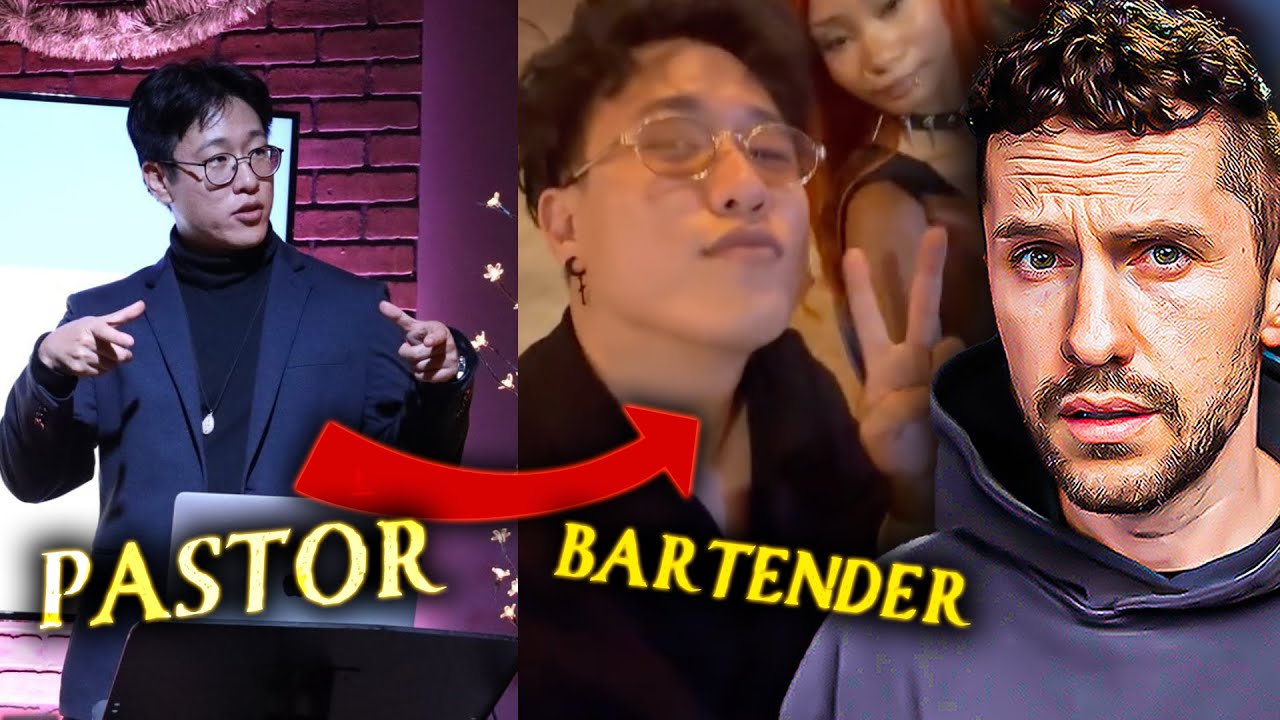Especialista REVELA Como Jovens Estão Superando Universitários em Tempo e Salário Usando IA
Summary
TLDRThe transcript discusses the decline in demand for higher education in Brazil, highlighting that many young people no longer see value in pursuing degrees like a master's. With low stipends and the requirement for exclusive dedication, the traditional education system is less appealing compared to alternative paths like short online courses that offer quick results and higher earnings. The speaker compares how professions like physiotherapy, which take years to complete, offer less financial return than jobs such as Uber or iFood drivers, which can earn more in a shorter time.
Takeaways
- 📉 The demand for higher education in Brazil is decreasing.
- 💼 There are many available spots in Master's programs, but people are not applying.
- 💰 Master's students often receive low stipends (about R$1800), which are not enough to live on.
- ⏳ Exclusive dedication is required for many programs, limiting other income opportunities.
- 🎓 People are increasingly questioning the value of long-term education programs.
- 📚 Short courses, like those offered online, are seen as more effective and faster routes to high earnings.
- 💸 Short courses can result in contracts worth R$30,000 to R$40,000 in a short time.
- 👩⚕️ Traditional degrees, like physiotherapy, take longer and offer lower starting salaries (~R$4000).
- 🚗 Gig economy jobs like Uber or iFood offer comparable or even higher monthly earnings (~R$4000+).
- 🤔 Many young people no longer see value in spending years in university when quicker, more lucrative options exist.
Q & A
Why are fewer people seeking higher education in Brazil according to the transcript?
-The transcript suggests that fewer people are seeking higher education in Brazil due to the changing world, where alternative educational paths like online courses offer quicker, more financially rewarding results compared to traditional degrees.
What are some issues with pursuing a Master's degree in Brazil mentioned in the transcript?
-The transcript highlights that Master's degree students in Brazil often face low stipends (around R$1800), which are insufficient to live on, especially with the requirement of exclusive dedication to their studies.
How does the speaker compare alternative courses to higher education?
-The speaker suggests that alternative courses, such as specialized professional training, can lead to quicker, more lucrative results within a shorter time frame, compared to spending years in higher education.
What is the speaker's opinion on the financial return of traditional degrees like physiotherapy?
-The speaker notes that while a degree like physiotherapy might lead to a salary of around R$4000, gig economy jobs like Uber or iFood can provide similar or even higher monthly earnings, making university education less appealing.
What salary comparison does the speaker make between traditional jobs and gig economy jobs?
-The speaker compares traditional jobs, such as physiotherapy with a salary of R$4000, to gig economy jobs like Uber and iFood, which can earn equal or higher amounts without requiring a university degree.
What point does the speaker make about the future of higher education?
-The speaker suggests that for many young people today, higher education is becoming less relevant because other quicker, more practical paths, such as online courses, offer better financial opportunities without requiring years of study.
What are the challenges of surviving on a Master's stipend in Brazil?
-The speaker explains that the Master's stipend of R$1800 is too low to live on, especially since students are often required to commit to full-time studies, preventing them from earning additional income.
What is the significance of social proof in the context of alternative courses?
-The speaker mentions seeing social proof, where students of alternative courses share successful outcomes, such as earning R$30,000 to R$40,000 in a short period, highlighting the appeal of these programs over traditional degrees.
Why does the speaker believe some young people no longer see the value in higher education?
-The speaker believes that young people no longer see the value in higher education because alternative paths, like online courses or gig economy jobs, provide quicker financial returns without the need to spend years studying.
What does the speaker imply about the future of universities?
-The speaker implies that universities may face declining interest from young people as more practical and financially rewarding alternatives become available, making traditional education less attractive.
Outlines

Cette section est réservée aux utilisateurs payants. Améliorez votre compte pour accéder à cette section.
Améliorer maintenantMindmap

Cette section est réservée aux utilisateurs payants. Améliorez votre compte pour accéder à cette section.
Améliorer maintenantKeywords

Cette section est réservée aux utilisateurs payants. Améliorez votre compte pour accéder à cette section.
Améliorer maintenantHighlights

Cette section est réservée aux utilisateurs payants. Améliorez votre compte pour accéder à cette section.
Améliorer maintenantTranscripts

Cette section est réservée aux utilisateurs payants. Améliorez votre compte pour accéder à cette section.
Améliorer maintenantVoir Plus de Vidéos Connexes

Top 5 Best Master's Degrees (2024)

Faculdade ainda vale a pena? Curso Técnico ou Faculdade? - com Ben Zruel

Ex-Pastor Turned BARTENDER Because of THIS

Lulusan S2 Cuma Bisa Jadi Tukang Sapu! Bakal Memburuk? Krisis Pengangguran India |LearningByGoogling

Understanding U.S. Higher Education: Academic Degrees

Why nearly 10 million Indonesian Gen Zs are unemployed | Asia News Week
5.0 / 5 (0 votes)
